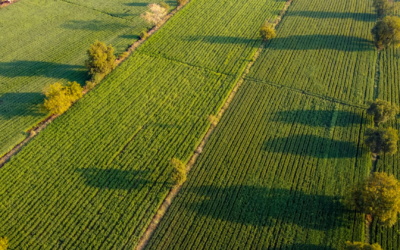In a world where headlines scream about climate change, geopolitical tensions, and economic uncertainties, a quiet revolution is taking place in our fields and laboratories. Agricultural sciences—often overlooked in mainstream discussions—are rapidly evolving to meet humanity’s most fundamental challenge: feeding a growing population while preserving our planet for future generations.
The Intersection of Crisis and Innovation
As we move through 2025, global food security concerns continue to intensify. The UN Food and Agriculture Organization recently reported that climate-related disruptions affected harvest yields across multiple continents last season. These challenges, while daunting, are driving remarkable innovation in agricultural sciences.
Consider the drought-resistant wheat varieties now being deployed across previously vulnerable regions, developed through careful genomic research rather than genetic modification. These crops represent just one example of how agricultural sciences are creating solutions that work with nature rather than against it.
Precision Agriculture: Less Input, More Output
One of the most exciting developments is the widespread adoption of precision farming technologies. What was once the domain of only the largest industrial farms has become accessible to medium and small-scale operations.
Satellite imagery, drone monitoring, and IoT sensors now enable farmers to apply water, fertilizers, and pest control with surgical precision. This technology-driven approach isn’t just improving yields—it’s dramatically reducing the environmental footprint of agriculture by minimizing chemical runoff and conserving water resources.
A farmer in the Midwest recently told me, “We’ve cut our water usage by 40% while increasing yields by 15%. The technology paid for itself in two seasons.” These efficiency gains represent the kind of win-win solutions that agricultural sciences excel at creating.
Regenerative Agriculture: Beyond Sustainability
Perhaps the most transformative movement in agricultural sciences today is the shift toward regenerative practices. Moving beyond the concept of sustainability—merely maintaining current conditions—regenerative agriculture actively improves soil health, increases biodiversity, and sequesters carbon.
Research from agricultural science departments across universities has demonstrated that properly managed cover cropping, no-till farming, and rotational grazing can transform depleted soils into carbon sinks while improving farm productivity and resilience to extreme weather events.
Global Collaboration in Agricultural Sciences
What makes me particularly hopeful is the unprecedented level of international collaboration in agricultural sciences. Knowledge sharing between researchers in developed and developing nations has accelerated, with open-source farming techniques and regionally adapted solutions becoming more accessible.
Digital platforms now connect researchers in Kenya with farmers in Kansas, allowing for rapid dissemination of successful practices and technologies. This democratization of agricultural knowledge represents our best hope for addressing food security challenges globally.
The Path Forward
As consumers, voters, and global citizens, we all have a stake in supporting agricultural sciences. Here’s how we can contribute:
Support research initiatives at universities and non-profits focused on sustainable agricultural practices. Advocate for policies that incentivize regenerative farming methods. Consider the environmental impact of our food choices and support farmers using sustainable practices.
The challenges facing our food systems are complex, but agricultural sciences are providing practical solutions that balance productivity with environmental stewardship. By investing in these innovations and the people developing them, we’re not just addressing today’s food security issues—we’re cultivating a sustainable future for generations to come.
What agricultural innovations have you observed in your region? How has technology changed farming in your lifetime? I’d love to hear your perspectives in the comments below.
If you’re interested in learning more about how you can support sustainable agricultural initiatives or invest in this vital sector, chat with one of our advisors today.




0 Comments